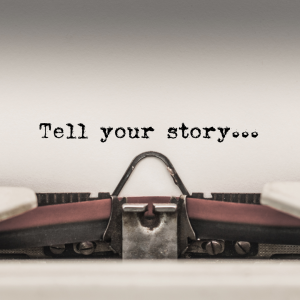I’m here to help show you a way out with 21 easy and creative songwriting tips for beginners and advanced musicians alike.
#1: Don’t Overthink Songwriting
It’s easy to overcomplicate the entire process for writing songs. We often think we have to write a masterpiece on our first try or we are failures.
However, you’re unlikely to write a song perfectly your first time around (don’t worry, it happens to the best of us), so go easy on yourself.
Writing songs takes dedication and repetition, so keep writing! Putting pressure on yourself to write the next song of the year will only hurt your creativity and confidence.
The important thing is to enjoy the process of writing and write as many songs as you can.
When you get in the habit of writing, you will get better with each piece you create!
Success builds on success.
#2: Don’t Rely on Inspiration
Waiting on inspiration is a terrible songwriting plan.
Inspiration is like that friend that always talks about hanging out with you but never follows through.
Discipline, however, is that friend that is dependable and always has your back. Discipline will stick with you even when you show up with bad ideas.
But sometimes, a great song idea comes from nowhere unexpectantly, on a day you were sure you would write junk. However, that simple act of putting pen to paper every day will finally lead you to your moment with “inspiration”!
#3: Write Songs For Yourself

Write music because you want to write music. If you begin the writing process with others in mind, you might make songwriting decisions based on what you think others will want to hear.
This generally will lead a musician towards writing a song that unoriginal, uninspired, and bland.
Write from your experiences and personal tastes. If the song rings true to you first, it is much more likely to ring true with others.
#4: Borrow From Your Favorite Songwriter
Quick disclaimer: This tip does not mean stealing other songs. Copyright infringement is never ok, and you must be careful to make sure that everything you create is original and your own.
Writing a song that feels authentic is not always easy. However, it’s important to remember that no music is original. Every song structure and melody is pretty much a derivative of another song.
It’s ok to study songs and figure out what makes them stick out to you. Then borrow those ideas and frameworks for your own songs.
So with that said, take a listen to your favorite musician and pay attention to these three areas:
Lyric Structure
Look up the lyrics online and start looking at how they structure and write lyrics in their song.
- What kind of rhyme scheme is being used?
- Do they always use a certain amount of syllables in the verses or chorus?
- Is there a pattern in the syllables?
- If you remove the verses, how does it affect the context of the chorus?
Answering these questions will help your understanding of the intentionality behind the words chosen. It might also reveal the “secret” to why this song is so catchy to your ear.
Melodic Structure
Listen for how the songwriter crafts the shapes of their melody line.
Ask yourself these following questions:
- What types of melodic contrast is the songwriter using?
- Rhythmic Contrast (i.e., lots of short notes in the verse and long notes in chorus)?
- Melodic Contrast (i.e., static melody in verse and ascending melody in the chorus)?
- Do they repeat a specific type of melody throughout the song (Motif)?
Try to dissect what is going on in the melody that creates a feeling within you. Then, try and replicate similar principles and patterns with your own songwriting.
Chord Progressions
There aren’t any chord progressions in modern songwriting that are original. The same variations of chords are used by singer-songwriters over and over again.
With this said, look at a song’s chord progression and use it for your own work. Just make sure that you develop a unique melody and rhythm to avoid plagiarizing the song.
You won’t be the first to do this, and you won’t be the last!
Songwriting tips like this feel like cheating, right? But here’s why it works…
There is no other YOU. While songs might all be cut from the same cloth, you aren’t. Your voice, perspective, and story will make a piece of the music stand out, so write from your heart.
#5: Remove Distractions
Our brains burn calories processing information. So when you are constantly checking your emails, social media, or binge-watching TV, you are decreasing your capacity to be creative.
If you are working on a song or an idea, shut off everything else. For example, put your phone on airplane mode and don’t check it when you write.
Allowing distractions will increase your procrastination and decrease your focus.
#6: Listen to Other Artists Explain Their Process
Songwriting can be a challenge, especially when you are trying to discover what makes your voice unique.
If you struggle with inspiration, a great way to find it is by listening to other artists discuss their songwriting methods.
Not only will you gain insight into their creative process, but you quickly realize that songwriting is more about discipline and hard work rather than divine inspiration.
In short, great songwriting is something you learn to do.
Some of the best websites for hearing the stories behind songs are:
https://www.songwritersonprocess.com/
#7: Capture All Your Ideas

There are so many ideas I wish I would have written down over the years. However, I can confidently say there’s nothing worse than coming up with an inspired idea only to forget what it was the next day.
Make sure you are writing down all your lyric ideas and recording all your melodic ideas.
I recommend using a Digital Audio Workstation (DAW) for songwriting. A DAW gives you the flexibility to not only capture your ideas but to start tweaking and experimenting on how to improve upon them.
You may find writing music with an instrument like guitar or piano more organic, which is how I’m wired, but make sure that you capture it in some form once you have your idea.
You’ll often regret it if you don’t!
—
Are you considering learning guitar but unsure if it will be too difficult for you? I’ve created a resource that goes over the pros and cons of learning guitar that you should check out here:
Is Guitar Hard to Learn? | What You Need to Know to Succeed
—
#8: Write a Good Story
A good song tells a good story. Don’t forget to create drama.
Here is a simple framework for creating an engaging story with your songwriting.
Verse 1: Create a problem that hooks your listener and gets them engaged in the story you’re trying to tell.
Chorus: Deliver lines that begin to answer the question.
Hook: The main message of the entire song. Generally, the title of your song. The hook usually will be the last lyric of your Chorus line. A hook line might seem vague outside the context of the verse and chorus. i.e., Coldplay’s “Fix You.”
Verse 2: Bring in more story details to the characters/situation of the song. Raise the stakes to the question posed in Verse 1.
Bridge: Create a “detour” in the song. Bring in more context and richness to elevate the final chorus lines.
Utilizing a story format will make your music more engaging and memorable.
Remember, drama creates exciting art!

#9: Think of Song Lyrics Like a Conversation
Every songwriter desires to write lyrics that are witty and clever. But don’t let that desire lead you down the path of writing contrived music.
Be clear, concise, and intentional with your lyrics.
Think of songwriting as a conversation between you and your audience. If your lyrics don’t read well, then it won’t communicate well.
It’s easy to get distracted by the little things. First, however, make sure everything you sing is centered on your song’s main idea.
Write your lyrics on paper, and then say them out loud.
- Does it sound natural?
- Does it sound like something that could be said in a conversation?
If not, then rewrite your lyrics.
Also, start paying attention to the conversations you have throughout your day. Listen for phrases that stick out and inspire you. These conversational phrases are the key to writing great songs.
#10: Set Time Constraints
Have you ever heard of “The Tyranny of Choice?”
When we have so many options at our disposal, we fail to choose anything at all. We don’t act because we’re afraid to make the wrong decision.
This same problem happens in songwriting. There are so many different ways, genres, and techniques to create our music today. It can get overwhelming. So much so, we often end up creating nothing at all.
Learn to put a time limit on your creative process. For example, block out 60 minutes where your only goal is to have the chorus lyrics done.
This type of time limit will force you into making decisions that progress your songwriting forward.
#11: Write Your Melody First
This is one of those songwriting tips that is debated. Some other articles may suggest that you start with your lyrics or title first.
However, I’m going to go out on a limb and say write your melody first.
Melody is king in modern songwriting.
Without a great melody, your lyrics don’t matter.
A great song melody is the most critical part of any piece of music. Work on crafting a compelling and catchy hook by singing with vowels first, then add lyrics.
This process will ensure that you build the proper vehicle to deliver your message to your listener.
If you are having trouble writing a melody, try using an instrument like a piano or guitar.
#12: Get to the Chorus Fast

“Don’t bore us; get to the chorus.”
Max Martin (one of the most successful producers/songwriters working today) has stated he wants the Chorus to hit before 50 seconds. If it doesn’t, the song must be rewritten.
I’d recommend sticking to this rule because the chorus hook is the most crucial part of the music.
If you wait too long to hit the chorus, your audience will tune out.
This tip is especially important if you want to write songs for others or get into music licensing.
#13: Don’t Get Fancy With Your Song’s Structure
Songwriters are creatives, but sometimes that creativity is a liability to your craft.
Don’t fall into the trap of trying to be “original.” Leverage traditional songwriting frameworks to help you complete your song.
People are complex and want to break the rules for the sake of “artistic expression,” however, songs aren’t complicated, and they generally follow simple song structures.
There is nothing wrong with your artistic expression, but remember that most listeners are used to hearing typical structures in music.
So don’t reinvent the wheel!
Follow tried-and-true structures for creating music—for example, verse-chorus or intro-verse-chorus-bridge-outro.
#14: Get Feedback

It’s crucial not to write in a vacuum.
It would help if you had at least one person’s objective feedback regarding your songwriting development.
It will save you tons of time, and it’s an essential part of songwriting.
You will develop your songwriting chops must faster with good honest feedback.
Just remember to take it in stride and be humble and open to others’ criticisms.
#15: Take Regular Breaks
There comes the point in every creative writing process where the law of diminishing returns sets in. The decisions you make will start hurting your song rather than help it.
The solution to this problem is taking breaks. Give yourself the time you need to come back fresh with new ideas and a clear perspective. This will help you stay focused and productive when working on your songs!
There are many moments throughout the creative process where you will get stuck in ruts. So give yourself some time off from your songwriting, and it will pay dividends.
Some people choose to take a walk, work out, or meditate during their break, but in my opinion, the best thing to do is sleep on it.
#16: Abandon Projects
An important concept to understand for your songwriting success is that you don’t have to finish your songs.
Sometimes you get an idea, and it will not work. You’ll dive in, work hard, and then you hate everything about the song by the end of the process.
If this happens, don’t beat yourself up over it; walk away from that track and focus on something new.
You may have wasted some time, but if you want to be a successful songwriter, you’ll have to learn how to walk away from a song and start fresh.
However, never throw them away because…
#17: Re-Work Old Projects
Pulling ideas from old songs that you have written is an excellent way to generate an idea for your next piece.
When you remove yourself from the music for an extended period, you’ll often look back and realize the project contained some great ideas.
These ideas can be a great jumping-off point to a much better song.
A great example of a famous artist who has done this is Justin Vernon of Bon Iver.
Justin repurposed a guitar part from an old song called “Hazelton” for one of his most popular Bon Iver song’s “Holocene.”
Maybe now is the time to dust off that old track and rework it into your next hit!
#18: Use Modern Tech
There’s a good chance that you’re not using all the tech available to help you create music.
Sure, we are all familiar with music creation software like Logic Pro X or Pro Tools. However, did you know that some cloud-based software can really speed up writing melodies and lyrics?
My two favorites are:
Jasper.AI
Jasper is an Artificial Intelligence software that does creative writing. So, for example, you can ask it to write your lyrics, and it will come up with some pretty unique words.
Its primary reason for being is for marketing and copyrighting, but it can develop some great poetry.
After all, isn’t songwriting a form of marketing copy?
It might not spit out a hit song for you without a bit of work from your end. However, it sure will break you out of writer’s block in seconds.
To learn more about Jasper, please refer to my review article “The Power of Writing With Jasper AI for Musicians, Marketers, and Students.”
HookTheory’s Hookpad
This is a very intuitive program that will help you write songs quickly. It assists songwriters who may not be well versed in music theory. However, you will find that using this tool will make the subject of music theory more straightforward than ever.
Suppose you are ever lacking inspiration for writing a song. In that case, Hookpad is the kind of tool you need to add to your arsenal.
To read my full review of Hookpad and how it can help you write great songs quickly, please click here.
#19: Work With a Co-Writer
If you find yourself stuck on a song, perhaps you need to find yourself a co-writer.
There is no shame in bringing someone else into your songwriting process. In fact, getting a fresh perspective on your music may be just what you need to jump-start the lyrics and/or melody for that song.
However, be mindful of giving a co-writing credit where credit is due. It can be challenging to give up partial credit on your own song, but if it helps the music be the best it can be, it’s vital to the songwriting process.
Ultimately a song exists for the listener, not the artist.
#20: Work With a Producer

If you want to boost your productivity by writing songs, working with a producer can be a great option.
There are many benefits to working with producers, such as:
- A producer will have the skills and experience to take your music to a professional level
- They can provide guidance, feedback, new ideas, and input when you’re stuck
- You’ll generally get more value out of working with them than you would on your own
However, working with a producer can also be challenging because no two producers are the same.
So if you’re considering working with a producer, here is some advice:
- Find someone who has produced music in the genre/style that you want to make
- Make sure they have a solid understanding of your goals and expectations for the song
- They genuinely want to help make your song as best as it can be
#21: Make Writing a Discipline
This is one of those songwriting tips that should be done every day.
But I get it; life’s busy.
From my experience, if you try to make something a daily habit, you will fail. It’s tough to do anything EVERY day.
Make writing songs a regular practice.
For example, “Every other day at 9 am, I will write music for 30 minutes.”
If you did that alone, you would have written around 100 hours in that year!
I guarantee that will change your songwriting productivity.
Try to set aside 30-90 minute chunks of time every other day and start writing music, even if it is just lyrics on your phone app.
If you write often, your ability to come up with songs will increase considerably.
The brain will create new neural pathways on the things you repeat. These pathways make you more efficient at doing specific things. Over time this efficiency allows for improvements in our abilities as songwriters.
What to do next?
Hopefully, these songwriting tips will spark inspiration to help you craft your best song yet.
All it takes is one song to change the world- so what are you waiting for?
If you have been struggling with how to write a song, I’ve created an easy 5 step guide to crafting your next hit. Please go check it out here!

